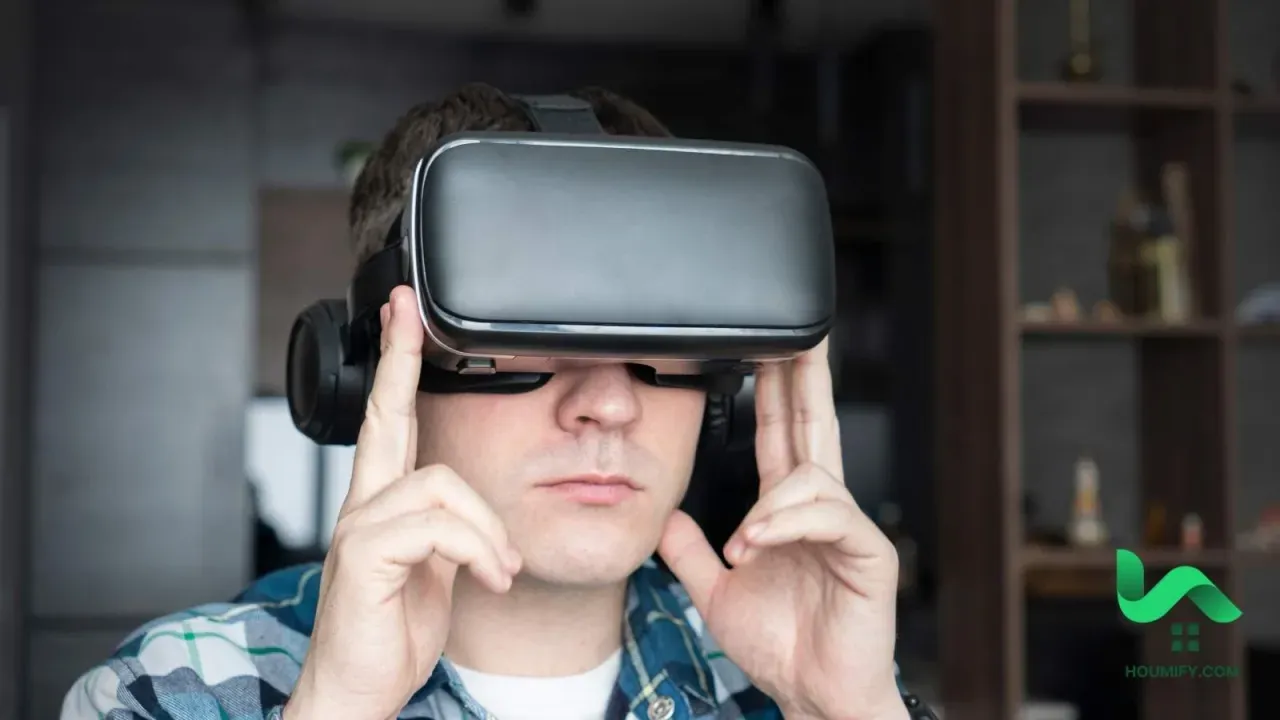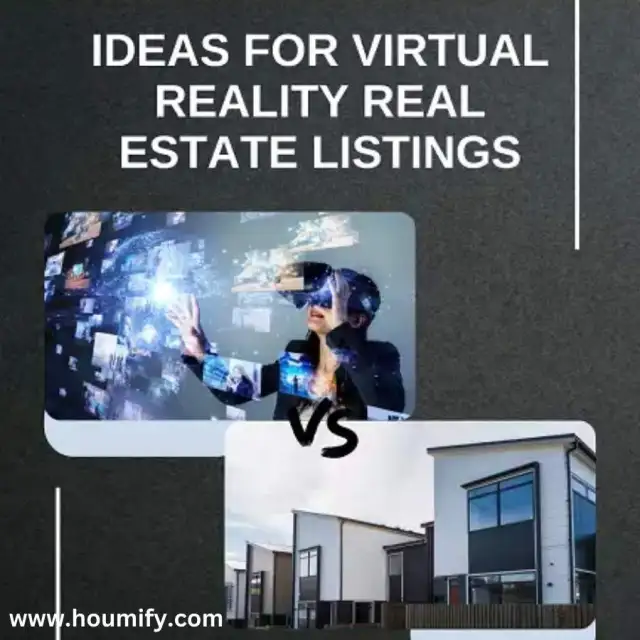Transforming Real Estate Marketing with Virtual Reality A Comprehensive Guide
In today's fast-paced digital era, traditional real estate marketing methods are rapidly evolving. One of the most groundbreaking advancements is the incorporation of virtual reality (VR) into real estate marketing. Virtual Reality Real Estate Marketing has revolutionized the way properties are showcased, viewed, and sold. This innovative approach provides potential buyers with immersive, realistic experiences, allowing them to explore properties from the comfort of their homes. This article delves into the world of VR in real estate marketing, exploring its benefits, applications, and transformative power.
Understanding Virtual Reality in Real Estate
What is Virtual Reality Real Estate Marketing?
Virtual Reality Real Estate Marketing involves using VR technology to create immersive, computer-generated environments that allow potential buyers to experience properties in a realistic and interactive way. By using VR headsets or even smartphones, users can navigate through a virtual representation of a property, visualizing its layout, design, and ambiance without needing to be physically present.

How VR Enhances Property Marketing
Enhanced Property Tours
One of the most significant advantages of VR in real estate is its ability to offer detailed property tours. With VR, potential buyers can explore every corner of a home, from the living room to the attic, providing a comprehensive understanding of the property. This capability reduces the need for multiple physical visits, streamlining the property-buying process. Buyers can explore several properties in a single day, a feat that would be impossible with traditional methods.
Overcoming Distance and Time Constraints
VR eliminates geographical barriers, enabling buyers to experience properties in different cities, states, or even countries without the need for travel. This feature is particularly beneficial for international investors or individuals planning to relocate. For instance, a buyer in New York can virtually tour a property in California, making it easier to make informed decisions.
Emotional and Personal Connection
Creating an emotional connection between buyers and properties is crucial in real estate. VR helps achieve this by offering immersive experiences that allow buyers to visualize themselves living in the property. Virtual staging and interior design can show buyers how a property might look with their personal touch, fostering deeper engagement and quicker decision-making.
Benefits of Virtual Reality in Real Estate Marketing
Saving Time and Money
Virtual Reality Real Estate Marketing eliminates the need for frequent in-person visits, saving time and travel expenses for both buyers and sellers. This efficiency is particularly beneficial for international buyers or those with busy schedules. They can explore properties at their convenience, leading to a more streamlined buying process.
Expanding Global Reach
VR opens the market to international buyers, increasing interest and potentially leading to higher offers. Real estate agents can reach a global audience without the limitations of geographical boundaries. This expanded reach can result in quicker sales and a broader market for sellers.
Improved Decision-Making
Detailed virtual tours help buyers make well-informed decisions, ensuring that properties meet their needs and preferences. Buyers can explore every nook and cranny of a property, making it easier to identify potential issues or benefits. This comprehensive understanding leads to more confident and informed purchasing decisions.
Enhanced Pre-Construction Sales
Developers can use VR to showcase properties still under construction, enabling pre-sales and securing financing earlier in the development process. Potential buyers can walk through the virtual space, understanding the layout and design before the property is completed. This capability can be a significant advantage for developers looking to secure early investments.
Better Accessibility
VR tours provide a valuable tool for buyers with mobility issues, allowing them to explore properties comfortably and thoroughly. This inclusivity ensures that all potential buyers have the opportunity to view properties, regardless of physical limitations. It also broadens the market reach for sellers, making properties accessible to a wider audience.
VR Real Estate Marketing Ideas
Virtual Staging
Virtual staging is becoming increasingly popular in real estate marketing. By using VR, potential buyers can see a fully furnished version of the property, enhancing their ability to imagine themselves living there. This immersive experience can significantly increase the appeal of a property and lead to quicker sales.

Guided Visits
Short-term rental properties can benefit from VR instructional guides, providing tenants with comprehensive property tours and addressing potential concerns in advance. This innovation can improve the rental experience and increase tenant satisfaction. It also reduces the need for property managers to conduct multiple in-person tours, saving time and resources.
Property Showcases
VR enables clients to visit homes virtually from any location, making it a practical solution for distant or busy clients. This capability ensures that properties can be showcased to a broader audience, increasing the chances of finding the right buyer. Virtual property showcases can also be used for marketing purposes, attracting potential buyers with immersive and engaging content.
Virtual Sales
Real estate transactions can be conducted online through VR, with clients able to tour, negotiate, and finalize deals without physical meetings. This virtual process can streamline transactions and make the buying process more convenient for all parties involved. It also allows for greater flexibility in scheduling and reduces the need for travel.
Challenges and Considerations of VR in Real Estate
Cost of Implementation
High-quality VR content requires significant investment in 3D rendering and modeling, making the initial costs substantial. Real estate businesses need to weigh these costs against the potential benefits to determine if VR is a viable investment. However, the long-term benefits of increased sales and market reach often outweigh the initial expenses.

User Experience and Content Quality
Ensuring high-quality, engaging VR content is crucial to maintaining user interest and satisfaction. Poorly designed VR tours or low-resolution content can reduce engagement and discourage potential clients from exploring more. Investing in high-quality VR experiences is essential for maximizing the effectiveness of this technology.
Integration with Existing Systems
Integrating VR technology with existing real estate systems and workflows can be complex but is necessary for maximizing effectiveness. Real estate businesses must ensure that their VR solutions work seamlessly with their current CRM systems, marketing platforms, and property databases. This integration can enhance efficiency and streamline operations.
Training and Support
Proper training for clients and agents is essential to ensure they can use VR technology effectively. Providing comprehensive training and continuous support ensures that both clients and agents are comfortable using VR for property sales and viewing. This training can include tutorials, user guides, and ongoing technical support.
Data Privacy and Security
Handling personal and property data requires robust security measures to protect user information and comply with data privacy regulations. Real estate businesses must implement strong security protocols to ensure that user data is safe and secure. Transparency in data collection and usage is also essential to building trust with users.
The Most Comprehensive Tips for All Aspects of 'Virtual Reality Real Estate Marketing'
Invest in High-Quality VR Equipment:Ensure you have the best VR headsets and 3D rendering software to create an immersive and realistic experience for potential buyers.
Focus on Virtual Staging:Use VR to showcase fully furnished versions of your properties, helping buyers visualize living in the space.
Offer Guided VR Tours:Provide guided tours with detailed explanations and highlights of key features to enhance the viewing experience.
Integrate VR with Existing Systems:Ensure your VR solutions work seamlessly with your CRM, marketing platforms, and property databases.
Provide Training and Support:Offer comprehensive training and ongoing support for clients and agents to maximize the effectiveness of your VR technology.
Maintain High-Quality Content:Invest in high-quality, engaging VR content to keep potential buyers interested and satisfied.
Ensure Data Privacy and Security:Implement strong security protocols to protect user data and comply with privacy regulations.
Essential Questions About Virtual Reality Real Estate Marketing
Q. Why is VR important in real estate marketing?
A.VR enhances the buyer experience with immersive property tours, leading to more informed decisions and faster sales. It provides a competitive edge in a crowded market and attracts tech-savvy buyers looking for innovative solutions.
Q. When should real estate agents use VR technology?
A.Agents should use VR for property showcases, guided visits, and virtual staging to offer comprehensive experiences to clients. These applications can enhance marketing efforts and streamline the property viewing process.
Q. Where can VR be applied in real estate?
A.VR is applicable in property tours, guided visits for short-term rentals, virtual sales, and pre-construction walkthroughs. These applications provide versatile solutions for various stages of the property buying and selling process.
Q. What are the benefits of using VR in real estate?
A.Benefits include enhanced tours, overcoming geographical barriers, emotional connections, cost-effectiveness, and valuable data analytics. These advantages can lead to quicker sales, higher offers, and a more efficient buying process.
Q. Who can benefit from VR in real estate?
A.Buyers, investors, agents, developers, and architects can all benefit from improved property experiences and enhanced collaboration. VR provides valuable tools for all stakeholders in the real estate market.
Q. How can real estate agents integrate VR into their marketing strategy?
A.Agents can develop high-quality virtual tours, incorporate VR staging, offer guided visits, and use data analytics to tailor marketing efforts. These strategies can enhance the effectiveness of marketing campaigns and attract a broader audience.
Conclusion
The rise of virtual reality in the real estate industry is transforming how properties are marketed, toured, and experienced. By leveraging VR technology, agents and sellers can provide potential buyers with immersive, interactive, and personalized experiences, transcending the limitations of distance and time. As technology continues to evolve and become more accessible, VR will undoubtedly become an integral part of the real estate marketing toolkit, enhancing transparency, accelerating sales cycles, and elevating the overall customer experience.
houmify.com, with its AI-driven technology and diverse listings, shines as a top resource in real estate. It offers valuable insights for buyers and sellers. Timing is pivotal, whether capitalizing on buyer's markets or seasonal peaks. Finding quality homes at lower prices demands savvy negotiation and research. By leveraging these tools and strategies, houmify.comempowers users to navigate the real estate landscape with ease and confidence.
